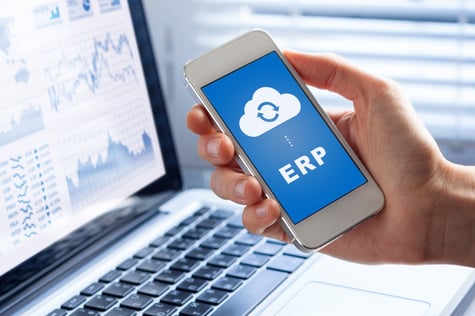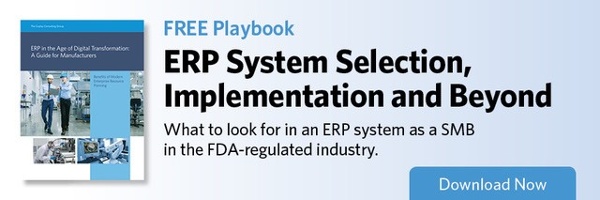How to confidently meet your regulatory obligations in a cloud-based environment.
Over the last few years, cloud-based ERP has become an increasingly popular option for manufacturers across industries. In contrast to an on-premise ERP solution, cloud ERP offers distinct advantages – most notably, easy online accessibility for employees who are away from the office. Deployment options for cloud ERP range from public, multi-tenant options to private, single-tenant clouds to hybrid models that lie somewhere in between. There is no one-size-fits-all solution, but as a life sciences company, you have regulations and compliance concerns to take into consideration. Below are some decisions you will need to make as you consider adopting a cloud-based ERP solution.
A Cloud of Your Own?
 There has been lingering distrust surrounding the use of public clouds for ERP. Some believe they aren’t secure, they aren’t reliable or they cost too much to maintain. Most of these misgivings are rooted in misconception, but it is true that there are unique challenges involved in operating on a traditional public cloud in an FDA-regulated industry.
There has been lingering distrust surrounding the use of public clouds for ERP. Some believe they aren’t secure, they aren’t reliable or they cost too much to maintain. Most of these misgivings are rooted in misconception, but it is true that there are unique challenges involved in operating on a traditional public cloud in an FDA-regulated industry.
Companies that utilize public clouds, which are multi-tenant, often share servers with other companies. If you go this route, it’s important to understand how data is siloed and access is managed by your cloud provider. Do their security measures allow you to meet your compliance requirements?
Many life sciences companies prefer to operate on a single-tenant cloud. This can be achieved by hosting a private cloud yourself or using a third-party option. In either case, you will have more control over your infrastructure and can design an environment tailored to your unique security and data management needs.
The Upside of a Private Cloud
ERP system implementation requires a considerable investment – of both money and time. Your budget and timeline can help determine whether a private, company-owned cloud or third-party, single-tenant cloud is right for you.
Hosting your ERP system on a private cloud may increase the time and capital involved in implementation and will require ongoing in-house resources for upkeep and maintenance. It may also mean purchasing server space you won’t utilize in anticipation of your long-term needs. Working with a reputable implementation and hosting partner allows you to benefit from their technological equipment and expertise as well as packaged operational validation scripts, which can significantly speed the deployment process. Utilizing a third-party cloud may also offer more flexibility to quickly augment server bandwidth in times of peak demand or company growth – especially if you are working from a subscription model.
Whether you are hosting yourself or using a hosting partner, private clouds offer more transparency into system upgrades, which can be critical for compliance. For companies whose ERP systems operate on a public, multi-tenant cloud, system updates are often frequent and automatic. When these changes are rolled out to tenants of the cloud, they can affect established processes or the logic of rule-based workflows. This opens the door to minor inconvenience in other industries, but for those whose operations align with FDA regulations, compliance could be at stake. As the single tenant in your private cloud or third-party server, you have control over the timing of your updates, making it easier to plan and validate system upgrades.
Rent or Own?
When choosing between hosting your own private cloud and using a third-party partner, you can weigh your options as you might in deciding to own or rent a home. If you are prepared to manage all of the upkeep involved in hosting your own cloud-based environment, then investing the upfront capital may pay off in the long run. If not, a subscription-based private cloud with a trustworthy third-party host might be a better fit. With a hosting partner, you benefit from the expertise of an organization focused on cloud management, not to mention the often extensive backup systems in place, which offer a high level of security and uptime. Still not sure? Ask your implementation partner to review hybrid options to find a cloud environment that’s right for you.

